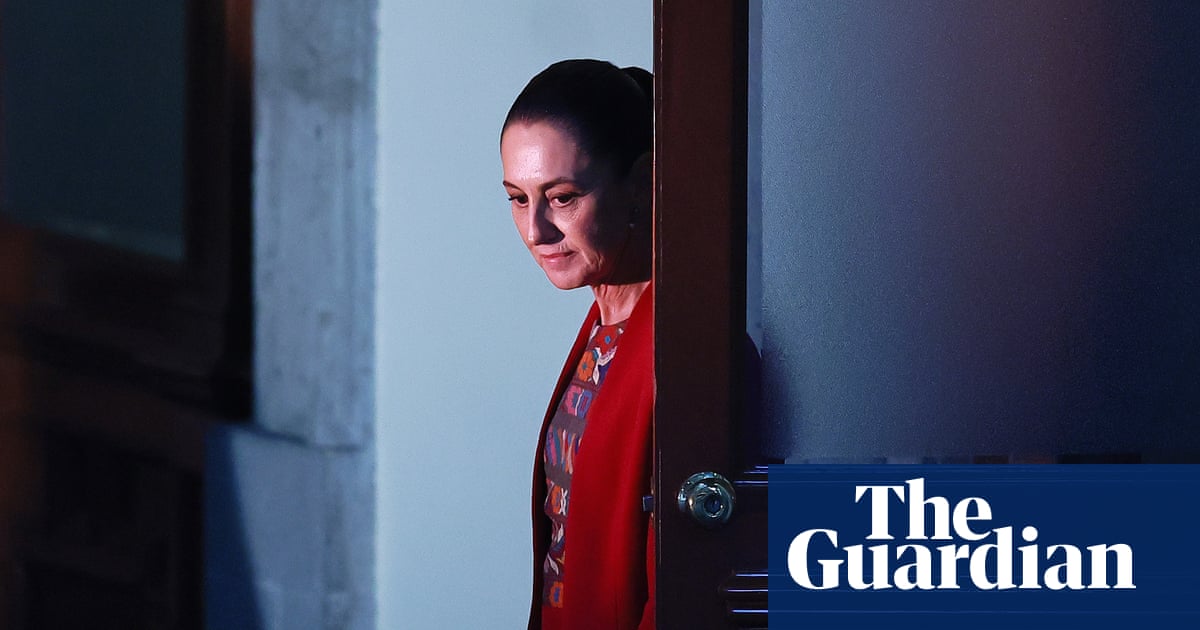Hospitals are bracing for a once-in-a-decade flu season, with a mutated version of the virus that is spreading widely in younger people expected to drive a wave of admissions when it reaches the elderly.
The threat has prompted NHS managers to redouble efforts to vaccinate staff and communities, expand same-day emergency care and treat more patients in the community to reduce the need for hospital stays.
As resident doctors in England continue a five-day strike over pay, hospitals are turning to contingency plans to bring in consultants and other staff for extra shifts and reschedule appointments where necessary.
“Last flu season was particularly nasty and we’re very concerned that this year could be even worse,” said Elaine Clancy, the group chief nursing officer for St George’s, Epsom and St Helier university hospitals. “We’re preparing for a spike of flu on to our wards.”
Scientists first spotted the mutated version of the flu virus in June. Genetic analysis shows it is a descendant of a strain that this year fuelled Australia’s worst flu season on record. The country recorded more than 400,000 lab-confirmed cases, with low vaccination rates compounding the problem.
The mutated virus, which changed through a natural process called antigenic drift, has swiftly become the dominant strain in the UK, triggering the start of the flu season more than a month earlier than usual.
Dr Claire Beynon, the executive director of public health for Cardiff and Vale university health board, said: “We are seeing a rapid and early increase in influenza this winter and are expecting to see an increase in hospital admissions.”
A spokesperson for NHS Greater Glasgow and Clyde said flu numbers across its sites were normal for the time of year, but that it was implementing efforts to relieve pressure on hospitals “at pace”.
Flu cases surge every winter, but health officials fear this season could be particularly severe if the new mutations in the dominant strain help it to evade people’s immune defences.
The virus is a subtype of influenza called H3N2, which tends to cause more severe illness than other subtypes in circulation, particularly in older people. The mutations may boost the virus’s transmissibility. It is too early to know if they make infections more severe.
In a normal flu season, the R value, which is the average number of people an infected person passes the virus on to, is around 1.1 to 1.2. This season it is thought to be 1.4, meaning every 100 people with flu are expected to infect a further 140.
“Whenever there is an early start to the season, there tends to be a bigger peak,” said Antonia Ho, a professor in infectious diseases at the MRC-University of Glasgow Centre for Virus Research. One reason is that fewer people have been vaccinated when they come into contact with the virus.
On Thursday, the UK Health Security Agency (UKHSA) said flu cases continued to increase overall, despite a temporary slowing due to the school half-term break. Infections are highest in children but are creeping up in older people. Health officials expect the numbers to rise further as colder weather drives more mixing indoors.
after newsletter promotion
“The new strain of flu is a worry on what was already predicted to be a big flu season,” said Caroline Abrahams, the charity director at Age UK. “It is more important than ever that everyone that is eligible – including older people – gets the flu vaccine and also takes precautions to stay well this winter.”
Early data from the UKHSA suggest that current vaccines are less effective at blocking infections caused by the mutated flu virus, but still provide good protection against severe disease. In England, vaccine effectiveness against hospital attendance and admissions is within normal range so far at 70-75% in children and 30-40% in adults.
While H3N2 can cause severe flu seasons, it is not inevitable. In 2003-24, the season started early with a drifted H3N2 strain. It led to 12,000 flu deaths in England and Wales, at the lower end of the typical range.
Ho urged all who are eligible to take up the vaccine offer and encouraged others to consider paying for the shot and using lateral flow tests to check for flu infections. According to the UKHSA, less than a third of people with one or more long-term health conditions have come forward for the vaccine.
Ed Hutchinson, a professor of molecular and cellular virology at the MRC-University of Glasgow Centre for Virus Research, said it was “quite plausible” the UK was on course for its most severe flu season in a decade.
“This has the potential to mean large numbers of people needing hospital treatment, particularly people in at-risk groups, notably older adults, but also people with underlying conditions, pregnant women, and very young children,” he said.

 2 months ago
57
2 months ago
57

















































